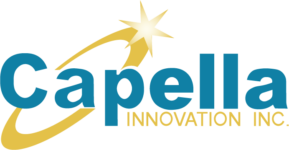Nutrition Facts Labels
At Capella Innovation, we can provide your business with a complete solution for your food labelling requirements to ensure compliance within all your destination markets.
Our network of global experts provide a comprehensive solution to all your food labelling requirements, ensuring you comply with the wealth of regulations in place around the globe. From full nutritional analysis to a complete label review, we can assess your product labelling to ensure that every aspect, including layout and language, complies with local legislation. We also evaluate product ingredients to ensure that they are allowed and are within legal limits.
At Capella Innovation, our specialists have the expert knowledge and experience to help food and beverage companies to comply with labelling regulations including those from the United States Food & Drug Administration (FDA), United States Department of Agriculture (USDA)and the European Regulation (1169/2011).
The following resources help the industry understand and comply with advertising and labelling requirements for food products in Canada. For example, the Bilingual Labelling component of the Industry Labelling Tool, outlines the mandatory information on food labels that is required to be presented in both English and French to be sold in Canada.
Resources from the Government of Canada:
- Understanding Food Labels
- Health Claims: What They Mean
- Nutrient content claims: what they mean
- Food Labelling
Capella Innovation can help you to understand claim for food labelling and navigate in the system and choose the right one for your product.
Health Claims
- A health claim is any representation in labelling or advertising that either states, suggests or implies that there is a relationship between consuming a food and human health.
- General health claims are broad claims that provide dietary guidance or promote healthy eating without referring to a specific health effect, health condition or disease.
- Implied health claimsare logos, words or symbols (e.g. “antioxidant”) that contribute to an overall impression about a food product.
- A function claim describes the effects of a food on the normal functions of the human body. These claims must be a scientifically supported physiological effect related to good health, and includes sub-categories nutrient function and probiotic claims.
- Anutrient function claim will describe the role of energy or a specific nutrient in the maintenance of good health, growth and development. An example of a nutrient function claim would be, “vitamin D is a factor in the formation and maintenance of normal bone and tooth development.”
- Probiotic claims are made in reference to microorganisms in food that benefit human health. Most often these are function claims, but can also be therapeutic or disease risk reduction claims. Probiotic claims can be either strain-specific or non-strain specific.
- Therapeutic claims refer to the relationship between a food and the treatment or mitigation of a specific disease or condition. They may also refer to restoring, fixing or modifying a particular physiological function. An example of a therapeutic claim is “Psyllium fibre helps to lower cholesterol.”
- A disease risk reduction claim relates a food or food ingredient to lowering the risk of developing a specific disease or condition. For example, “a diet rich in vegetables and fruit may help reduce the risk of some types of cancer” is an approved disease risk reduction claim.

